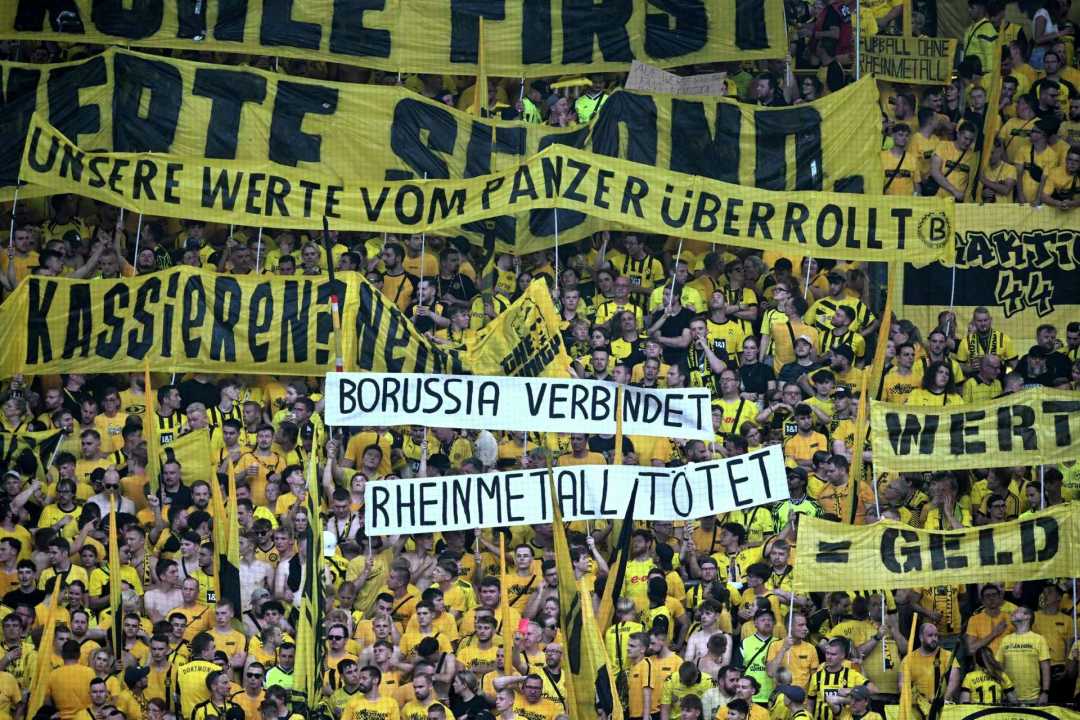Sports
Borussia Dortmund Fans Protest Sponsorship Deal with Rheinmetall

DORTMUND, Germany (AP) — Borussia Dortmund fans organized a protest against their club’s sponsorship agreement with the arms manufacturer Rheinmetall during the team’s Bundesliga opener on Saturday.
The second half of the match between Borussia Dortmund and Eintracht Frankfurt commenced amidst various banners that expressed opposition to the three-year sponsorship deal with Rheinmetall, which is based in Düsseldorf and is recognized as the world’s largest manufacturer of artillery ammunition.
One of the displayed signs read, “Not for (expletive) armaments industry,” while another sign accompanying a large banner criticized Rheinmetall directly. Additional messages included, “Money first, values second,” and “Our values rolled over by a tank,” indicating the fans’ discontent with the partnership.
Other banners included statements such as, “Borussia connects, Rheinmetall kills,” reflecting the sentiment among various supporters.
During the resumption of the game, the atmosphere amongst the fans was noticeably subdued, as many chose to withhold their vocal support for the team.
Prior to the match, campaigners set up a dummy tank outside the stadium. An activist donned a mask resembling Rheinmetall’s CEO, Armin Papperger, while holding a red card.
On the preceding Wednesday, a supporter association publicly declared the intention of more than 90 fan groups to demonstrate their opposition to the sponsorship at the beginning of the second half of Saturday’s game.
The association also criticized the timing of the announcement concerning the sponsorship deal, which occurred in May, just three days prior to Dortmund’s loss to Real Madrid in the Champions League final. They referred to the news as a “bombshell.”
This year, Rheinmetall forecasts record group sales reaching approximately 10 billion euros ($11.1 billion).
In February, Rheinmetall announced plans to expand its existing site in Unterluess, northern Germany, with an annual production capacity of 200,000 artillery shells, 1,900 tons of explosives, as well as potential production of rocket engines and warheads.
Founded in 1889 as “Rheinische Metallwaaren- und Maschinenfabrik Actiengesellschaft,” Rheinmetall was among Germany’s most prominent arms manufacturers during both World Wars and produced weaponry during World War II.












